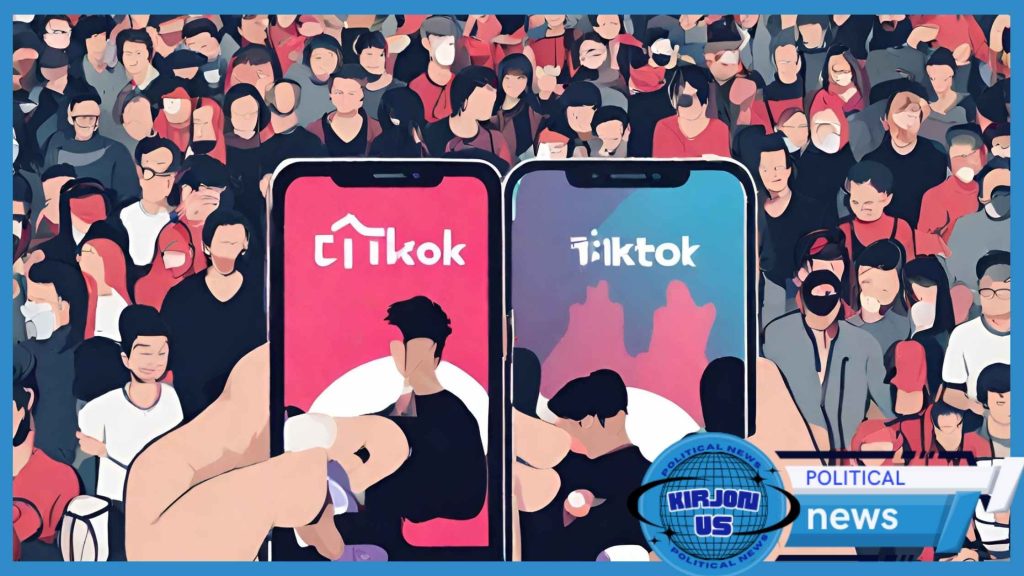In today’s interconnected world, social media platforms have become an integral part of our lives. One such platform that has captured the attention and hearts of millions is TikTok. However, recent TikTok bans have sent shockwaves through global markets and economies, raising questions about the future of social media regulations and government policies.
These bans have had significant repercussions on a global scale. By restricting access to TikTok, governments are not only affecting user behavior but also shaping the digital landscape. The absence of this popular platform has led to an economic impact that stretches far beyond just the tech industry.
One of the key concerns arising from TikTok bans is the disruption of global markets. Trade restrictions triggered by these bans have the potential to cause market volatility and significantly impact economies. The digital economy, which heavily relies on the social media industry, faces its own set of challenges in the absence of TikTok.
As we navigate through this changing terrain, it is crucial to examine the reshaping of global markets and digital landscapes. With TikTok out of the picture, new social media platforms are emerging, seeking to fill the void left by this ban. This surge of innovation not only alters user behavior but also affects the dynamics of the tech industry.
It is evident that TikTok bans are not only disruptors but catalysts for change. The long-term effects of these bans on user behavior, digital consumption patterns, and the overall global economy are yet to be fully understood. However, one thing is clear – social media regulations and government policies hold immense power in shaping our digital future.
Economic Impacts of TikTok Bans

TikTok bans have far-reaching economic impacts that extend beyond the realm of social media. As governments implement trade restrictions on the popular video-sharing platform, it creates a ripple effect in global markets and introduces market volatility.
The absence of TikTok, a platform with millions of users and a thriving creator ecosystem, disrupts established digital economies. Influencer marketing strategies heavily reliant on the platform’s reach and engagement suffer setbacks, necessitating businesses to pivot and adapt their marketing techniques.
Furthermore, trade restrictions arising from TikTok bans have direct implications on international commerce. By limiting the access to the platform, companies are unable to leverage its potential for cross-border collaborations and marketing opportunities. This impacts revenue streams for businesses that heavily rely on global outreach.
The Volatile Market and Tech Industry Trends
Market volatility becomes a distinctive feature following TikTok bans, as investors and stakeholders weigh the uncertainty surrounding the future of social media regulations. With global market shifts and dwindling user trust in established platforms, investors reconsider their positions in the tech industry.
The absence of TikTok’s influence can disrupt the digital landscape, necessitating businesses to reevaluate their strategies. As one of the most influential platforms across various demographics, its removal significantly alters the promotional landscape, enabling new players to emerge and establish their presence.
- In this evolving scenario, companies are compelled to explore alternative social media platforms to maintain their digital marketing efforts. Existing social media giants witness increased competition, ultimately shaping the dynamics of the tech industry.
- The digital economy undergoes transformations as user behavior adapts to the absence of TikTok. Shifts in content consumption patterns reshape the way businesses reach and interact with their target audience.
Overall, TikTok bans have profound economic impacts, leading to trade restrictions, market volatility, and a reshaping of the digital economy. As the tech industry evolves to accommodate these changes, businesses must remain agile to navigate the new digital landscapes that emerge.
Reshaping of Global Markets and Digital Landscapes
As TikTok bans continue to have far-reaching consequences, global markets and digital landscapes are undergoing significant transformations. The absence of TikTok has paved the way for the emergence of new social media platforms that are vying for the attention of users worldwide. These platforms are capitalizing on the void left by TikTok and are striving to fill the gap with innovative features and engaging content.
The tech industry, too, is experiencing a shift in dynamics as a result of these bans. The abrupt removal of TikTok has forced companies to reassess their strategies and adapt to the changing landscape. Tech industry trends are rapidly evolving, with a focus on privacy, security, and user data protection becoming paramount. The TikTok bans have ignited discussions around social media regulations and government policies, prompting tech companies to redefine their approach towards user privacy.
Furthermore, the long-term effects of these bans on user behavior and digital consumption patterns are being closely scrutinized. Users are seeking alternative avenues for entertainment and self-expression, leading to a diversification of social media platforms. This diversification has the potential to disrupt the dominance of established players and usher in a new era of competition and innovation in the social media landscape.
FAQ
What are the economic impacts of TikTok bans?
The economic impacts of TikTok bans can be significant. These bans can result in trade restrictions between countries, disrupting global markets and supply chains. Additionally, the absence of a popular social media platform like TikTok can lead to market volatility, affecting businesses and investors. The digital economy, which relies heavily on social media platforms, may also experience a shift in trends and consumer behavior.
How do TikTok bans reshape global markets and digital landscapes?
TikTok bans have the potential to reshape global markets and digital landscapes. With the absence of TikTok, new social media platforms may emerge, seeking to fill the void left by the ban. This can lead to changing dynamics in the tech industry and a shift in user behavior and digital consumption patterns. These bans also highlight the growing importance of social media platforms in shaping global markets and influencing economic trends.
What role do social media regulations and government policies play in the tech industry?
Social media regulations and government policies play a crucial role in the tech industry. These regulations can impact the operations and business models of social media platforms, affecting their growth and market presence. Government policies may also influence cross-border data flows, privacy, and cybersecurity measures, which can impact the digital economy. As governments around the world continue to implement stricter regulations, the tech industry is faced with the challenge of navigating these complexities.







